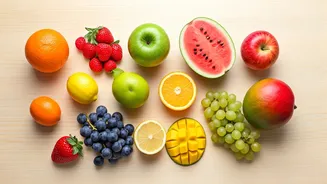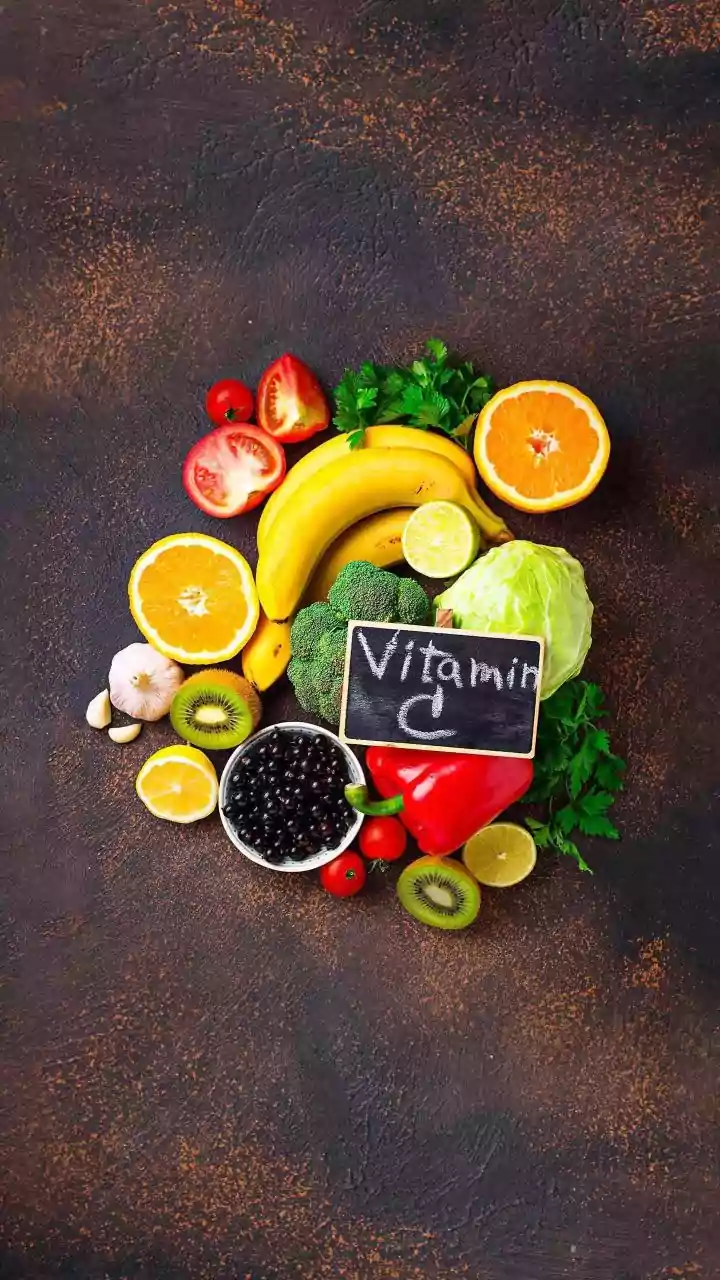Apples: Brain-Boosting Bites
Apples are a beloved fruit worldwide, and for good reason: they are a powerhouse of nutrients. They are rich in antioxidants, such as quercetin, which
protects the brain from damage caused by free radicals. This protection is crucial for long-term cognitive health. Moreover, apples offer fiber, which aids digestion and promotes a steady release of energy. The act of eating an apple also provides a natural energy boost, keeping kids alert and focused. The crunchy texture and sweet taste make apples a kid-friendly snack. Consider introducing apples early on in their diet and making them a regular part of their snacks and meals to support overall well-being and brain function. Varieties like Fuji or Gala are popular choices, and the skin contains many beneficial nutrients. Encourage children to eat the peel as well for maximum advantages.
Blueberries: Tiny Powerhouses
Blueberries are renowned for their incredible antioxidant properties, primarily due to their high anthocyanin content. These antioxidants combat oxidative stress, safeguarding brain cells from deterioration. Blueberries also improve blood flow to the brain, which enhances cognitive function and memory. These small, flavorful berries are packed with vitamins and minerals, supporting the overall growth and development of children. Offering blueberries regularly can help sharpen their focus and concentration, making them an excellent snack during study time or activities requiring mental effort. They are easy to incorporate into a child's diet. You can add them to cereals, yogurts, or smoothies, or just serve them as a simple snack. Their naturally sweet taste ensures that kids readily accept them.
Bananas: Energy and Focus
Bananas are an excellent source of energy because they are rich in carbohydrates and potassium, which plays a crucial role in maintaining brain function and nerve health. Bananas also contain tryptophan, an amino acid that converts to serotonin, a neurotransmitter which stabilizes mood and improves focus. The high fiber content in bananas helps to slow down the release of sugar into the bloodstream, avoiding energy crashes and supporting sustained attention. Providing bananas as a snack before or during school or other activities can keep children energized and attentive. They are a practical and easy-to-carry snack option for busy parents. They come naturally pre-packaged, making them great for on-the-go consumption, and the soft texture makes them easy for children to eat.
Oranges: Vitamin C Boost
Oranges are packed with vitamin C, which is vital for overall health and supports a robust immune system. Vitamin C acts as an antioxidant, protecting the brain from oxidative stress. Moreover, the antioxidants in oranges support the production of neurotransmitters that influence mood and cognitive function. Oranges also supply essential nutrients like folate, which contributes to brain development. Encouraging kids to eat oranges or drink freshly squeezed orange juice provides a tasty way to boost their vitamin C intake and aid their cognitive abilities. Oranges are a naturally sweet and refreshing fruit that kids tend to enjoy. You can easily add them to their daily diet as a snack or side dish.
Strawberries: Memory Support
Strawberries are brimming with antioxidants, especially anthocyanins, which protect the brain from free radical damage and boost blood flow. Improved blood flow is critical for enhancing memory and learning. Moreover, strawberries contribute to the overall health of the brain by reducing inflammation. Their vibrant color and sweet taste make them very appealing to children. Eating strawberries regularly can help boost a child's cognitive skills and support healthy brain function. Try mixing strawberries with other fruits in a smoothie or enjoy them as a part of a fruit salad. Strawberries are easy for kids to eat, either whole or sliced.
Grapes: Cognitive Function
Grapes, particularly red and purple ones, are rich in resveratrol, an antioxidant that offers cognitive benefits. Resveratrol protects brain cells from damage and improves blood flow to the brain, enhancing cognitive function and memory. Grapes also contain essential vitamins and minerals, promoting overall health and growth in children. You can easily include grapes in a child’s diet as a snack or as part of a meal. They are a sweet, convenient, and hydrating snack for kids. Offering grapes can contribute to their brain health and overall well-being. Provide a mix of colors to ensure they get different nutrients, and always cut them in half to prevent choking hazards in smaller children.
Avocados: Healthy Fats
Avocados are an excellent source of monounsaturated fats, which are crucial for brain development. These healthy fats support the structure and function of brain cells, improving cognitive performance. Avocados are also rich in antioxidants and vitamins, which protect the brain from oxidative stress. They have a creamy texture and mild taste, making them a great food for kids. You can incorporate avocados into a variety of dishes such as smoothies, sandwiches, or even as a simple spread on toast. Adding avocados can provide essential nutrients that promote cognitive function and development. Start by introducing it slowly, as the unique taste might need getting used to. Always serve them fresh to ensure the maximum benefits.
Mangoes: Nutrient Power
Mangoes are packed with vitamins and antioxidants, crucial for children's brain health. Vitamin C boosts the immune system and shields the brain from damage. Mangoes are also a great source of vitamin A, which supports healthy vision and brain function. Moreover, they contain fiber, aiding in digestion and providing sustained energy. The sweet and tropical flavor makes mangoes appealing to kids, and they are easy to include in various snacks and meals. You can serve them as part of fruit salads or smoothies. Make sure you select ripe mangoes, and peel them to make them easier for younger children to eat. Adding mangoes can support both brain function and overall physical health.
Pears: Fiber and Focus
Pears provide an excellent source of fiber, essential for maintaining gut health and supporting cognitive function. A healthy gut is closely linked to good brain function. Pears contain antioxidants that protect brain cells from damage, which is crucial for long-term brain health. The fiber in pears helps stabilize blood sugar levels, preventing energy crashes and assisting children in maintaining focus. Their gentle taste and soft texture make pears an excellent snack choice for kids of all ages. You can slice them or add them to yogurt and cereal. Including pears in their diet supports not only their cognitive health but also digestion and sustained energy levels. Always wash them well before serving.
Kiwi: Brain-Boosting Benefits
Kiwis are rich in antioxidants and vitamin C, vital for children’s brain health and overall well-being. Vitamin C shields the brain from oxidative stress, improving cognitive function. Kiwis also contain potassium, which supports nerve function and brain health. These fruits also have a unique combination of nutrients that support cognitive function and healthy growth. The sweet and slightly tart flavor of kiwi makes it appealing to kids. You can add them to fruit salads or smoothies. Always peel the skin to make it easier for the kids to consume. Including kiwis can greatly support brain health. Remember to consider individual preferences and introduce these fruits gradually as part of a balanced diet.



















